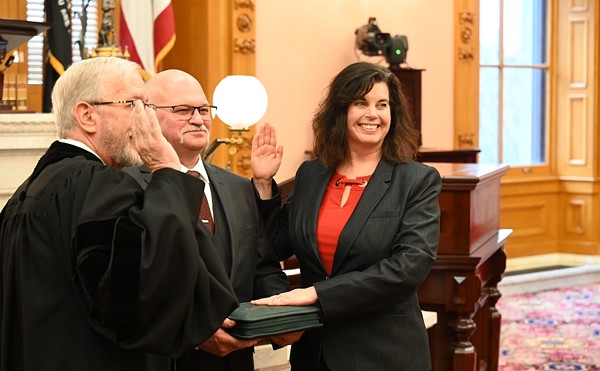Another Ohio politician has announced that he has a breakthrough case of COVID-19.
U.S. Sen. Rob Portman said Tuesday that he had tested positive for the virus. In a public tweet on Jan. 4, Portman said that he had learned the news via an at-home COVID-19 test.
He added that he was asymptomatic and would isolate for five days.
My statement after receiving a positive COVID test result: https://t.co/G83WtzaSFk pic.twitter.com/NAdckmBal9
— Rob Portman (@senrobportman) January 4, 2022
Portman, who is from Cincinnati, had previously said that he was fully vaccinated and had received a booster. Unlike other Republicans, Portman has supported coronavirus vaccines. He had been part of a Cincinnati-based trial for Johnson & Johnson's COVID-19 vaccine.
On Dec. 24, former Cincinnati Mayor John Cranley declared that he had also contracted COVID-19. Like Portman, Cranley was fully vaccinated and had received a booster.
Epidemiologists, doctors and other healthcare experts have said that the three COVID-19 vaccines available in the United States — Johnson & Johnson, Pfizer and Moderna — protect citizens against severe virus symptoms and largely prevent coronavirus patients from being hospitalized or treated with ventilators. COVID-19 patients who had been vaccinated largely can recover at home with minimal treatment, while the bulk of severe cases occurs within unvaccinated individuals.
In Greater Cincinnati, COVID-19 numbers continue to climb, with many experts attributing winter spikes to the highly transmissible Omicron variant. On Jan. 4, the city of Cincinnati reported 560 new COVID-19 cases. Of the new cases, 160 were age 20-29, 111 were 30-39, and 71 were 40-49.
On Jan. 3, Kentucky Gov. Andy Beshear said that on Dec. 30, the state had 6,441 COVID-19 cases, the highest ever for a single day (the previous highest number was 5,742 cases on Jan. 6, 2021).
On Dec. 29, Ohio Gov. Mike DeWine reported that 5,356 residents were hospitalized with COVID-19, surpassing Ohio's previous record of 5,308 hospitalizations from Dec. 15, 2020. He recently deployed National Guard members to relieve exhausted healthcare staff throughout the state.
In December, Dr. Stephen Feagins, the chief clinical officer and an internal medicine specialist at Mercy Health, explained that coronavirus variants happen because there are plenty of humans that still host and transmit the virus, giving it a chance to change into something else before dying off.
"Viruses replicate. That's what they do. It's a numbers game. That's why Delta is more transmissible than other variants, because there's just a lot more of it. It replicates faster and more efficiently. It's all about replication," Feagins said. "Whenever there's a mistake, if you will, in replication, that mistake allows the virus to transmit better, and then that particular mistake will be propagated. A virus has to be in some person or a living animal to do that. An antiviral stops replication one way or another."
"By stopping replication, that's how we fight a virus. It's all about replication inside human beings," he said, adding that vaccinations help that task.
Doctors have warned that gathering indoors — particularly with unvaccinated individuals, without masking and without social distancing, as many did during the holidays — increases the likelihood to both spread and get COVID-19.
During a Dec. 15 media briefing with Hamilton County officials, Dr. Richard Lofgren, UC Health's president and CEO, said that COVID-19 continues to be a big threat within the region.
"If there's any message I have that's highlighted in the data, it's that this pandemic is not over. It is active and alive and is actually overwhelming our health systems," Lofgren said.
Sign up for our weekly newsletters to get the latest on the news, things to do and places to eat delivered right to your inbox.
Follow us on Facebook, Twitter and Instagram.





